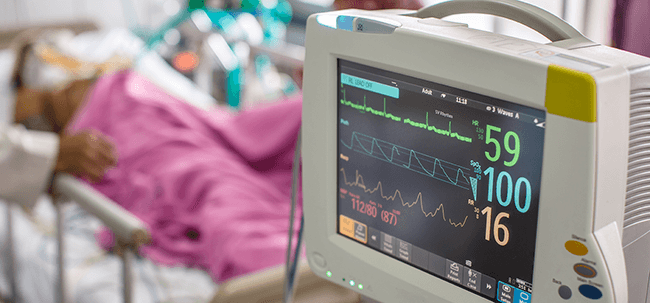A proportion of patients on mechanical ventilation after critical illness are unable to wean and have a higher risk of morbidity and death. While there are a number of factors that impact this inability to wean, some are stronger and more significant than others. Dyspnea due to respiratory muscle weakness, for example, often greatly contributes to the failure to wean (FTW). In order to help reduce the likelihood of FTW occurring in a patient, it is important to ensure that respiratory function is as strong as possible. Inspiratory muscle training (IMT) is one way that patients can improve their respiratory function. The study covered in this blog post tested IMT for improved respiratory function and increased weaning success in FTW patients.
Key Findings
- Patients who fail to wean from mechanical ventilation are at higher risk of morbidity and death.
- Dyspnea due to respiratory muscle weakness contributes to failure to wean (FTW).
- Respiratory muscle training was improved the respiratory muscle strength in patients on long-term mechanical ventilation.
- All patients were successfully weaned from mechanical ventilation after 9 to 28 days.
Patient Impact
RMT by IMST effectively improves weaning success after mechanical ventilation.
Study Methods
Patients on mechanical ventilation for an average of 72 days received daily IMT. Maximal inspiratory pressure (MIP) was assessed weekly, and unassisted breathing trials (UBT) were performed regularly. Patients were considered weaned when they were able to breathe unassisted for 48 hours.
Study Results
All patients showed significant increases in MIP and were weaned off mechanical ventilation within nine to 28 days.
Increase of respiratory muscle strength by IMT in patients on long-term mechanical ventilation greatly supports successful weaning.

0 Comments